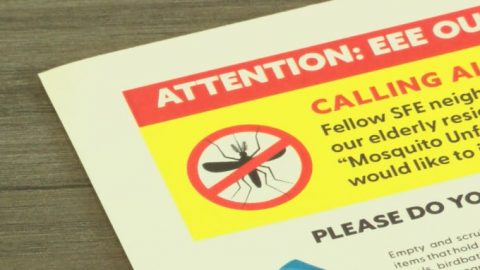Demi and Brenden are part of a growing number of teens turning to powerful new weight loss medications. According to data from health care analytics platform PurpleLab, in 2023, about 4,000 prescriptions of semaglutide, sold under the brand names Wegovy and Ozempic, were written for children ages 12 to 17.
The decision to put a teenager on a weight loss drug may sound extreme, but it falls in line with the latest recommendations from the American Academy of Pediatrics. Last year, the influential group added anti-obesity medications as part of its guidelines for treating obesity in kids ages 12 and up. Behavioral and lifestyle modifications — such as diet and exercise — are still considered the first line of treatment, but for kids and teens in which those aren’t enough, pediatricians can now prescribe medication.
Dr. Joan Han, the chief of pediatric endocrinology and diabetes at Mount Sinai Health System in New York City, said that a person’s genetics play a large role in his or her weight.
With that understanding, Han said, “it would make sense that sheer willpower is not necessarily going to fix excess weight gain.”
The AAP’s recommendations come as obesity rates continue to rise in children and teens in the United States. Fifteen million children and teens have obesity, and the percentage of kids impacted by it has tripled over the last three decades, according to the Centers for Disease Control and Prevention. Obesity can put kids at higher risk of developing high blood pressure, high cholesterol, Type 2 diabetes and obstructive sleep apnea.
Dr. Sheila Magge, director of pediatric endocrinology at Johns Hopkins Medicine in Baltimore, has seen an increase in cases of more severe obesity-related conditions in children, including non-alcoholic fatty liver disease.
“Some of the conditions that we almost exclusively used to see in adults, we are seeing them in children,” said Magge, who added that it’s important to treat kids with obesity early because related conditions, like Type 2 diabetes, may progress faster in kids than they do in adults. What’s more, about 80% of kids with obesity will turn into adults with obesity.
The new class of drugs — which includes semaglutide — could make treatment easier.
Semaglutide is a GLP-1 agonist. Other examples include tirzepatide, found in Eli Lilly’s Mounjaro (approved for Type 2 diabetes) and Zepbound (approved for weight loss); and liraglutide, found in Novo Nordisk’s Saxenda (approved for weight loss).
Magge said that what makes the GLP-1s so appealing is “the combination of their effectiveness and the relative side effect profile” compared to other medications approved for weight loss.
Some of the common side effects are nausea, vomiting and abdominal pain.
Demi said that when she first started taking Wegovy, she would get nauseous when she exercised heavily and dizzy if she didn’t drink enough water.
Roadblocks and pushback
The AAP’s recommendations, while welcomed by many doctors, were met with fierce pushback, including from groups concerned with eating disorders.
Other experts said they are concerned about the unintended consequences of the drugs, such possible effects on growth and development. Dr. Dan Cooper, a pediatric pulmonologist at UCI Health in Irvine, California, co-wrote a paper outlining such worries.
“We wrote this paper to kind of say, ‘Hey, let’s think about these things before we just started prescribing these medications for kids,’” Cooper said.
Wegovy’s drugmaker, Novo Nordisk, said in a statement that studies found their medicines “did not appear to affect growth,” adding that “the decision to prescribe an anti-obesity medication is at the discretion of the physician.”

The drugs are also extremely expensive, and insurance companies don’t always agree to cover them.
At first, Candice Mott, of Washington, D.C., wasn’t concerned about her daughter Jamison’s weight gain. She thought her daughter’s weight was normal, adding “she wasn’t heavier or bigger than me.” Mott said. “I figured she’d grow up and it would roll off.”
What alerted her to a larger problem was when she learned Jamison had elevated liver enzymes.
“I don’t want her to have a liver transplant when she’s 25, 26. She wants to be a doctor. I want her to be healthy,” Mott said.
She said Jamison tried losing weight; she was playing three sports and preparing her meals, but all that was unsuccessful. That’s when they decided to try a GLP-1 drug, but Mott hasn’t been able to get insurance to cover it.
Magge, from Johns Hopkins, prescribed Wegovy to Jamison because her BMI classified her as having obesity and because of her elevated liver enzymes. Magge has personally gone back-and-forth with the family’s private insurance company, outlining Jamison’s medical need for the medication.
Unfortunately, it’s a common occurrence, Magge said, adding that she’s rarely able to get weight loss medications covered for her patients.Nationwide shortages of the medications compound the problem, she said.
Magge also noted that her patients go through a full evaluation before being prescribed a weight loss medication.
“It’s a long visit,” she said. The team asks about home life, family history of obesity, and are screened for health conditions linked to obesity.
“It’s not like we just throw medicine at them without saying, ‘Exercise,’” Magge said. “This is after you’ve tried exercise, nutrition, then you can use this in addition.”









Recent Comments